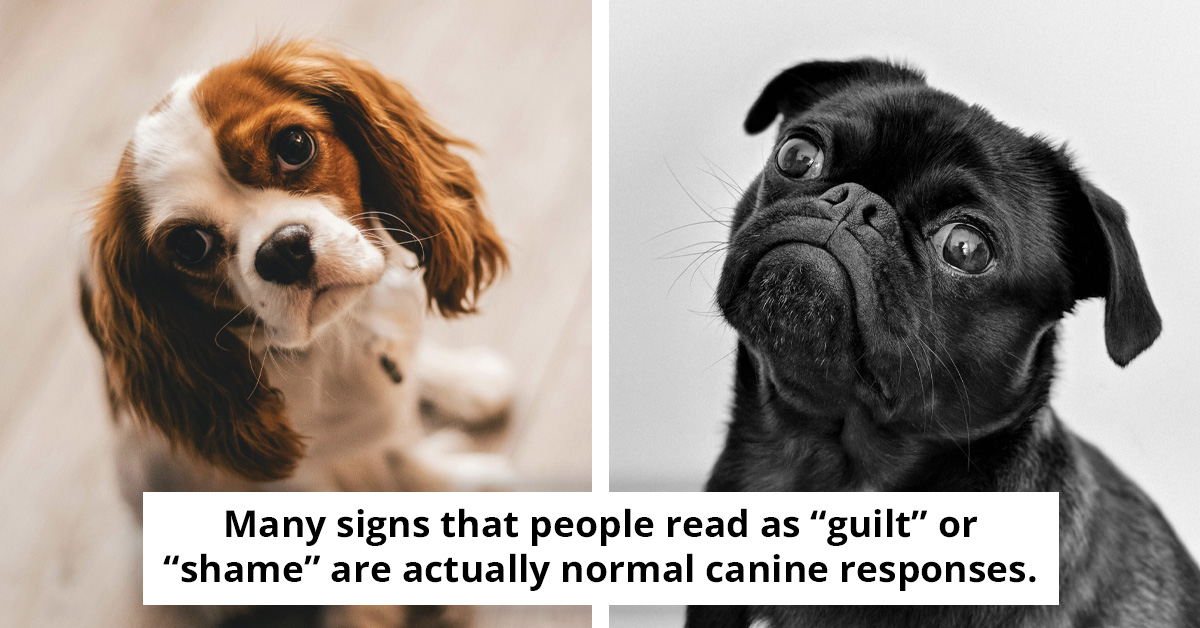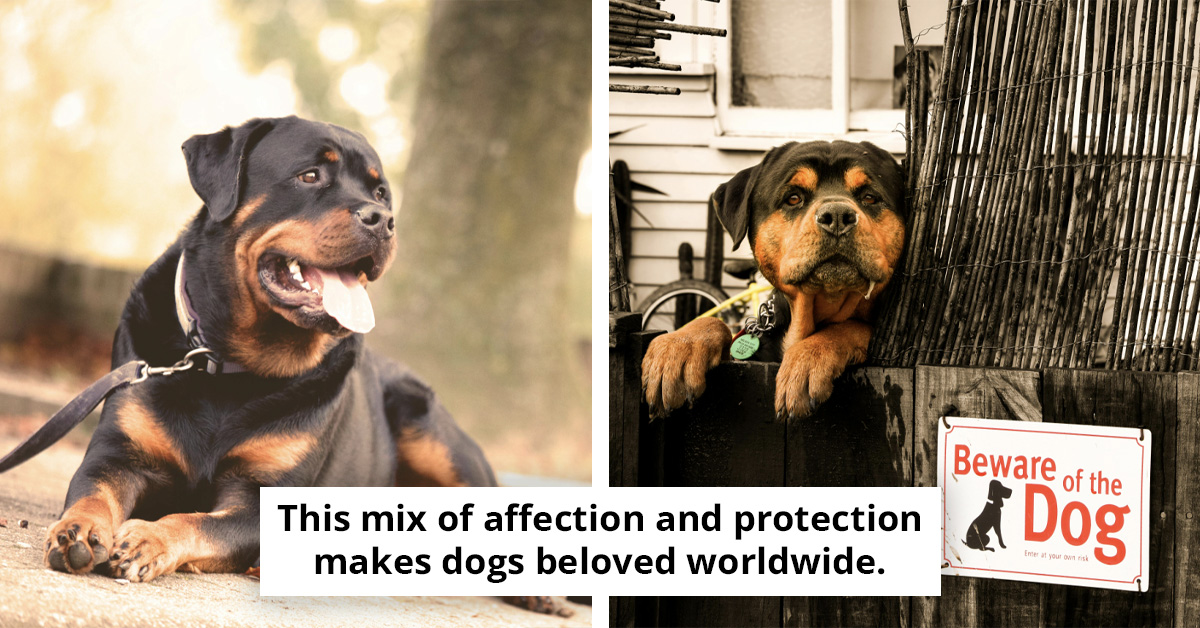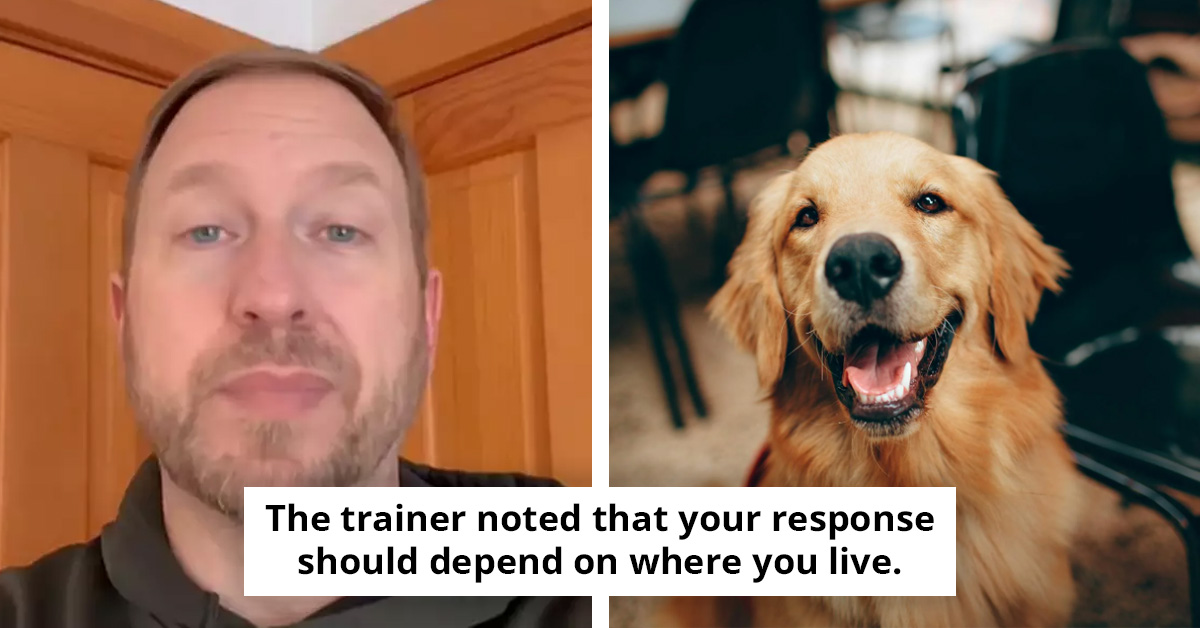Man Lets His Dogs Poop In Public Spaces And Refuses To Pick Up After Them, Leaving Neighbor Furious
Individual-Try3167 posted on the "AITA" subreddit seeking the community's advice on whether she should report her neighbor for not cleaning up after his dog. The post mentions that Individual-Try3167 lives in a pet-friendly apartment complex, and her neighbor, who has been living there longer than her, recently got a second dog.
Individual-Try3167 noticed dog poop around the building a few months ago and identified her neighbor as the source of the problem. She stated that her lease has a policy requiring tenants to clean up after their pets immediately, and pet poop bags are available in the dog park.
She also mentioned that she has seen other tenants picking up after their dogs, but her neighbor does not. Individual-Try3167 is frustrated by this situation because the smell of dog poop becomes unbearable when the weather warms up.
As such, she is considering reporting her neighbor to management. Individual-Try3167 acknowledges that her neighbor will likely receive a fine if she reports him for breaking the lease. However, she is also aware that reporting her neighbor could strain their relationship and lead to potential conflict.
Individual-Try3167 wants the AITA community's opinion on whether she is an a-hole for considering reporting her neighbor. Here's how they responded to her post.
Here's OP's story
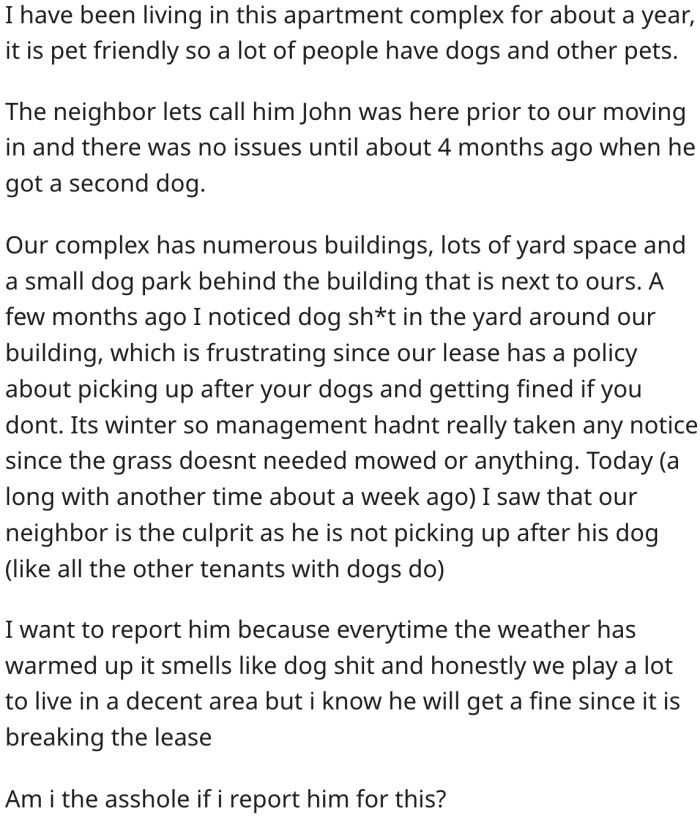
1. Her neighbor needs to clean up like others are doing.
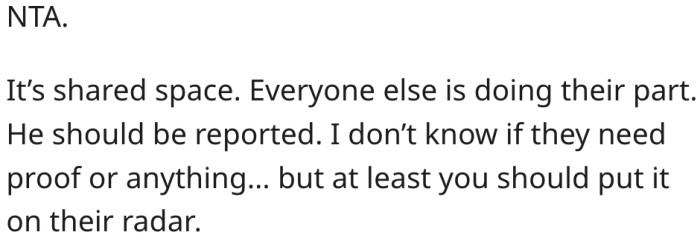
2. Actions have consequences.
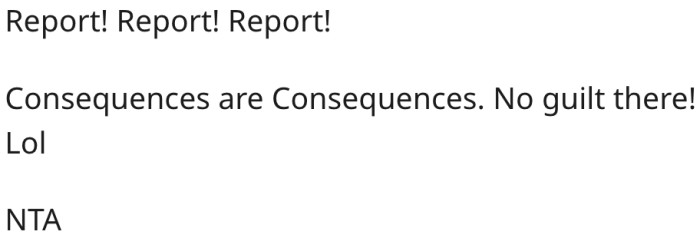
The Psychology of Pet Ownership and Responsibility
Pet ownership is often viewed through the lens of love and companionship, but it also carries significant responsibilities. Research from the American Psychological Association reveals that failure to meet these responsibilities can lead to feelings of guilt and frustration in neighbors and community members. When someone neglects their pet's needs, it can create tension in the community, resulting in anger and resentment among those affected.
3. Reporting should get her neighbor to do the right thing.

4. Her neighbor's actions are gross.

5. Her neighbor knew the rules before moving in.

The refusal to clean up after pets can be indicative of deeper psychological patterns, such as a lack of consideration for others or an inability to manage personal responsibilities. Behavioral psychologists suggest that this may stem from an unwillingness to accept the consequences of one's actions. A study in the Journal of Applied Psychology found that individuals who exhibit irresponsible behaviors often struggle with impulse control or prioritizing collective well-being over personal convenience.
6. Her neighbor is at fault.

7. She should report with video proof.

8. Her neighbor is lazy and selfish.

Navigating Neighborly Conflicts
In situations like these, it’s essential to approach the neighbor with empathy rather than anger. Communicating concerns can open a dialogue that may lead to increased awareness of the issue. Research suggests that using 'I' statements, such as 'I feel frustrated when...' can help reduce defensiveness and promote understanding. This approach aligns with the principles of nonviolent communication, which emphasizes the importance of expressing feelings without blame.
9. She shouldn't bother talking to her neighbor before reporting.

10. The landlord needs to intervene.

11. Cleaning after a dog is part of a dog owner's responsibility.

If direct communication doesn't yield results, exploring community resources can provide additional support. Engaging with local animal control or community mediation services may help address the issue without escalating tensions. Studies indicate that community intervention can foster a sense of collective responsibility and improve neighborhood dynamics.
12. Her neighbor lacks manners.

13. She can call the police if her neighbor tries to get back at her.

14. She needs to get proof first.

Understanding the Impact of Public Spaces
Public spaces are shared environments that require mutual respect and responsibility from all users. Research published in the Journal of Environmental Psychology emphasizes that neglecting pet waste can negatively impact community health and aesthetics, which can lead to a decline in community morale. Understanding this broader impact may motivate responsible pet ownership and community engagement.
15. she should capture him in the act.

16. Rules must be followed.
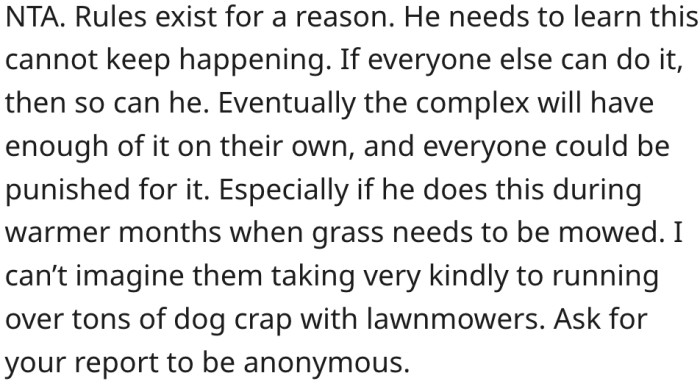
What do you think?
Cleaning up after your dog when they poop in shared places is an essential responsibility of every dog owner. When you take your dog out for a walk or to a shared outdoor space, you should carry a poop bag and be ready to pick up after them.
Leaving dog poop behind not only makes the place unpleasant for others, but it can also pose a health risk. Dog feces can contain harmful bacteria and parasites that can spread diseases to other animals and humans.
Furthermore, it is a common courtesy to pick up after your dog, especially in shared spaces like parks, sidewalks, and apartment complexes, where other people and their pets frequently pass through. Failure to do so is not only inconsiderate but may also result in fines or other penalties from the authorities or the landlord.
Therefore, as a responsible pet owner, always carry poop bags with you, and clean up after your dog to maintain a clean and safe environment for everyone to enjoy. What do you think?
Psychological Analysis
This situation exemplifies common conflicts arising from differing perceptions of responsibility within neighborhoods. It's important to recognize that behaviors often reflect deeper psychological patterns, including impulsivity or a lack of awareness. Engaging in open dialogues can help bridge gaps in understanding and promote a more harmonious community.
Analysis generated by AI
Analysis & Alternative Approaches
In conclusion, addressing issues of pet ownership and shared responsibility requires a blend of empathy, communication, and community action. Research consistently emphasizes the importance of fostering understanding and collaboration within neighborhoods. By encouraging responsible behaviors, communities can enhance overall well-being and cohesion.
